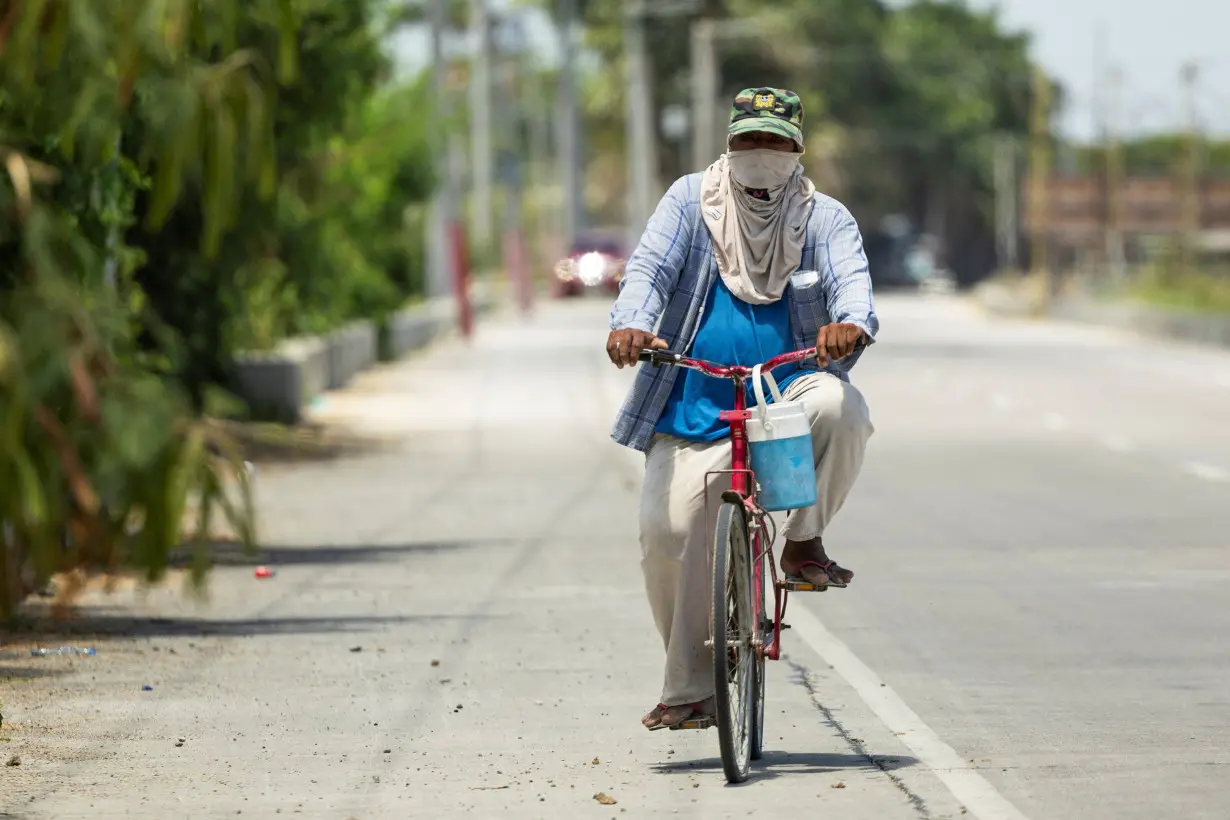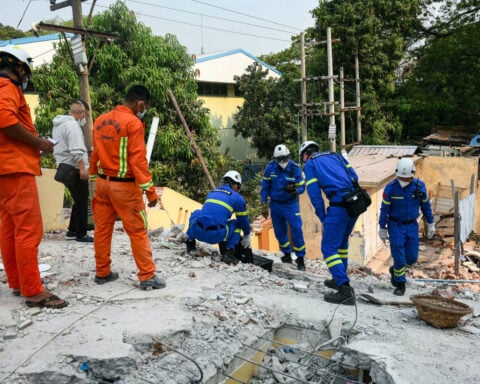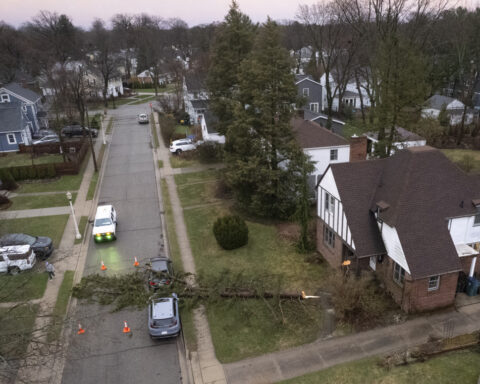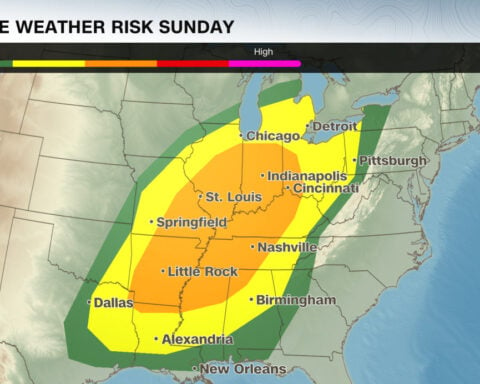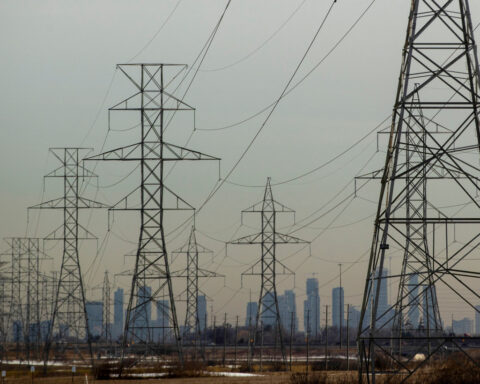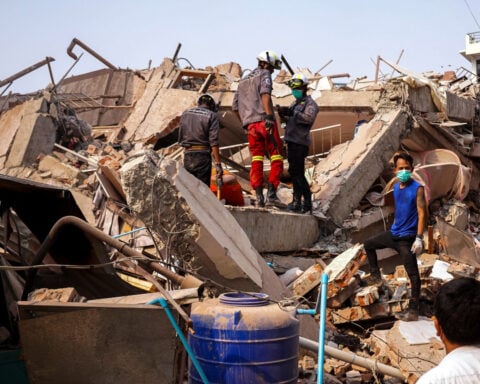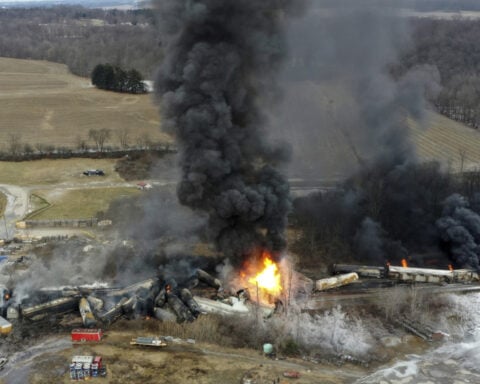By Jennifer Rigby and Gloria Dickie
LONDON (Reuters) - With extreme heat gripping much of the Northern Hemisphere this week, authorities and public health experts have issued heat warnings to help keep people safe.
Parts of China, India, the Middle East, southern Europe and the United States are bracing for the possibility of new record highs.
WHAT ARE THE HEALTH RISKS?
Heat affects health in several ways.
Heat exhaustion, which can include dizziness, headaches, shaking and thirst, can affect anyone, and is not usually serious, providing the person cools down within 30 minutes.
The more serious version is heatstroke, when the body's core temperature goes above 40.6 degrees Celsius (105 degrees Fahrenheit). It is a medical emergency and can lead to long-term organ damage and death. Symptoms include rapid breathing, confusion or seizures, and nausea.
As climate change continues to drive temperatures upward in coming years, the danger of humidity is also expected to rise. Warmer air can hold more moisture. And more moisture in the air makes it harder for people to sweat to cool down.
WHO IS AT RISK?
Some people are more vulnerable, including young babies and older people, as well as people who must stay active or are more exposed, such as homeless people.
Existing conditions, including respiratory and cardiovascular diseases, as well as diabetes, can also heighten risk - and be exacerbated by heat.
Many countries do not record heat as a specific cause of death, which means we do not have statistics to gauge this risk on communities.
However, a 2021 study in The Lancet estimated that just under a half-million deaths can be attributed to excess heat every year - a conservative count that lacks data from many low-income countries.
Many in Europe fear a repeat of the 2022 summer, during which heatwaves killed an estimated 61,000 people, scientists said.
The risks will continue to rise as climate change pushes global temperatures even higher in coming decades.
LESS OBVIOUS RISKS
Apart from testing a body's internal thermostat, extreme heat can pose a host of other, secondary risks.
Warmer temperatures encourage the growth of bacteria and algae. So heatwaves can raise the risk of water being contaminated with diseases like cholera, or of water bodies becoming choked with toxic algae.
Heat can also damage crops, adding to concerns about food security.
Starting from 2030, experts expect that global death tolls will increase by 250,000 per year as a result of four climate-related health risks: heat stress, malnutrition associated with food insecurity, malaria, and diarrhoea, according to the World Health Organization (WHO).
Wildfires fueled by dried-out trees or shrubs can lead to dangerous levels of air pollution, which can cause lung inflammation and tissue damage.
Studies have also suggested that both extreme heat as well as exposure to wildfire smoke could also be linked with low birthweight and premature births.
Heat stress can also contribute to poorer mental health. Rising night-time temperatures can disrupt people's sleep patterns, worsening mental health outcomes.
TIMING MATTERS
Experts say more deaths occur earlier in the summer when people's bodies have not had a chance to acclimatize to the season.
Location matters, too; people are at higher risk in places where they are not used to such heat, including parts of Europe.
As outdoor work becomes dangerous amid high temperatures, some countries and communities have shuttered schools or forced a shortening of daytime work hours for businesses.
WHAT YOU CAN DO
Public health agencies from India to the United States have issued advice on keeping cool, including avoiding exertion where possible and staying hydrated.
Authorities often aim to help by setting up cooling centers, distributing extra water or providing free access to air-conditioned public transport.
Workers should think about having more breaks and changing their clothing too, scientists said.
It is important to check in on the vulnerable, including older and isolated people, they said.
Heatstroke is a medical emergency and requires immediate professional attention.
(Reporting by Jennifer Rigby and Gloria Dickie; Editing by Katy Daigle and Marguerita Choy)

 Trump has begun another trade war. Here's a timeline of how we got here
Trump has begun another trade war. Here's a timeline of how we got here
 Canada's leader laments lost friendship with US in town that sheltered stranded Americans after 9/11
Canada's leader laments lost friendship with US in town that sheltered stranded Americans after 9/11
 Chinese EV giant BYD's fourth-quarter profit leaps 73%
Chinese EV giant BYD's fourth-quarter profit leaps 73%
 You're an American in another land? Prepare to talk about the why and how of Trump 2.0
You're an American in another land? Prepare to talk about the why and how of Trump 2.0
 Chalk talk: Star power, top teams and No. 5 seeds headline the women's March Madness Sweet 16
Chalk talk: Star power, top teams and No. 5 seeds headline the women's March Madness Sweet 16
 Purdue returns to Sweet 16 with 76-62 win over McNeese in March Madness
Purdue returns to Sweet 16 with 76-62 win over McNeese in March Madness
